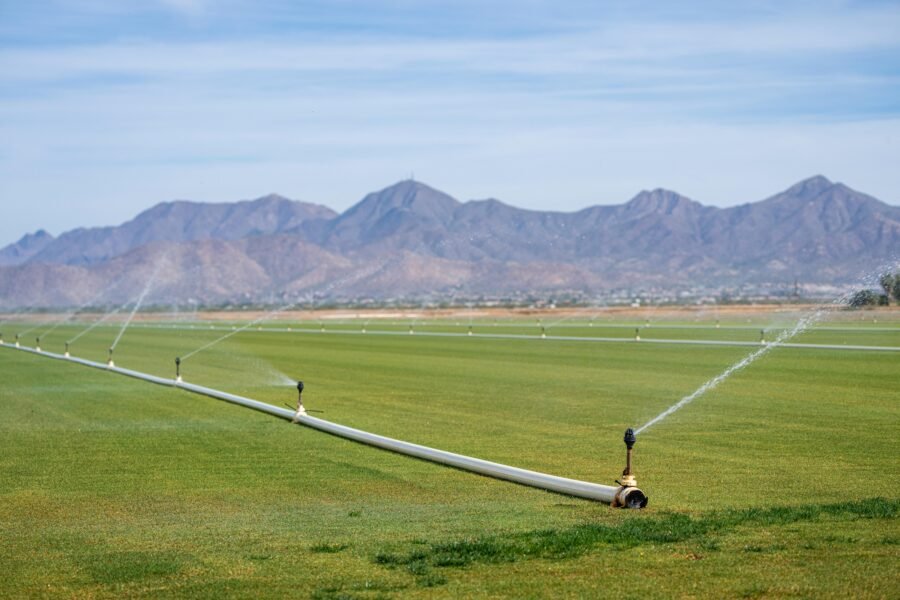Ag-to-Urban
New Senate Deal Could Transform Ag-to-Urban Water Strategy

A new water proposal in Arizona, dubbed “Ag-to-Urban,” is set to reshape housing development in the state. This plan allows builders to purchase water rights from retiring farmers, contingent upon their commitment to use only a specific percentage for new homes.
The bipartisan deal, confirmed by Sen. T.J. Shope, marks a significant legislative action. He emphasized its potential impact, stating it could lead to the construction of one million new homes while also conserving substantial water resources.
Currently, the proposal specifically targets Maricopa and Pinal counties, with the possibility of extending to Pima County depending on future regulatory decisions. If expanded, over 400,000 acres of farmland could transition to residential use.
Shope described the initiative as beneficial for farmers seeking to retire and for families aspiring to homeownership. However, not everyone shares this optimistic view. Rural officials have voiced concerns about the proposal lacking protections for groundwater in their areas, which have been a long-standing request.
Mohave County Supervisor Travis Lingenfelter criticized the deal as a missed opportunity to secure better water management for rural communities. He expressed disappointment in the absence of effective leverage during negotiations.
The disagreement isn’t merely political; it strikes at the heart of resource management. While urban developers celebrate the deal, rural leaders, including Willcox Mayor Gary Hancock, feel marginalized. Hancock emphasized that rural areas also require adequate water supplies.
Democratic leaders, alongside Hobbs, aim to designate additional regions as active management areas. This would allow for stricter controls over large agricultural operations that might threaten local water supplies.
The impetus for the Ag-to-Urban proposal stems from a moratorium on new water certificates issued in June 2023 in parts of the Phoenix metro area. This moratorium arose after data indicated insufficient groundwater in those regions, hindering compliance with the 1980 Groundwater Management Act.
That law demands builders to demonstrate a sustainable water supply for the next century. The ban on new certificates has provoked backlash from developers who advocate for expanded construction.
Shope has been pursuing a resolution for two years, having previously introduced a version of the bill that was vetoed by Hobbs last year. She cited concerns over water conservation and the need for a more tailored approach to different regions’ water supplies.
As negotiations continue, Shope remains optimistic about bipartisan support. He noted a significant housing shortage in Arizona, estimating a deficit of 270,000 units, which has contributed to rising home prices.
Despite the potential for increased housing, rural residents continue to fear over-extraction of water resources by larger agricultural enterprises. A coalition of counties in northern and western Arizona is working toward enhanced groundwater protections, representing nearly 650,000 residents without secure water sources.
The Senate is expected to vote on the Ag-to-Urban proposal soon, with hopes that it will soon reach the governor’s desk for approval.


![Katrina Woods stands next to her attorney, Ron Reyna, during her arraignment at Pinal County Superior Court on May 9,. 2025. Top: Snippets from court records show what Woods pleaded to in her county case. [David Iversen/Pinal County Superior Court/graphic]](https://arizonanews.org/wp-content/uploads/2025/06/FEMA-Fraud-Suspect-Katrina-Woods-Shocks-with-Plea-Deal-Now-400x240.jpg)
![Katrina Woods stands next to her attorney, Ron Reyna, during her arraignment at Pinal County Superior Court on May 9,. 2025. Top: Snippets from court records show what Woods pleaded to in her county case. [David Iversen/Pinal County Superior Court/graphic]](https://arizonanews.org/wp-content/uploads/2025/06/FEMA-Fraud-Suspect-Katrina-Woods-Shocks-with-Plea-Deal-Now-80x80.jpg)










![Mayor Nancy Smith speaks to a crowd during a lunch-and-learn event at the Maricopa Community Center. June 19, 2025. [Monica D. Spencer]](https://arizonanews.org/wp-content/uploads/2025/06/Mayor-Hints-at-Positive-Developments-Before-Tomorrows-ADOT-Vote-80x80.jpg)



